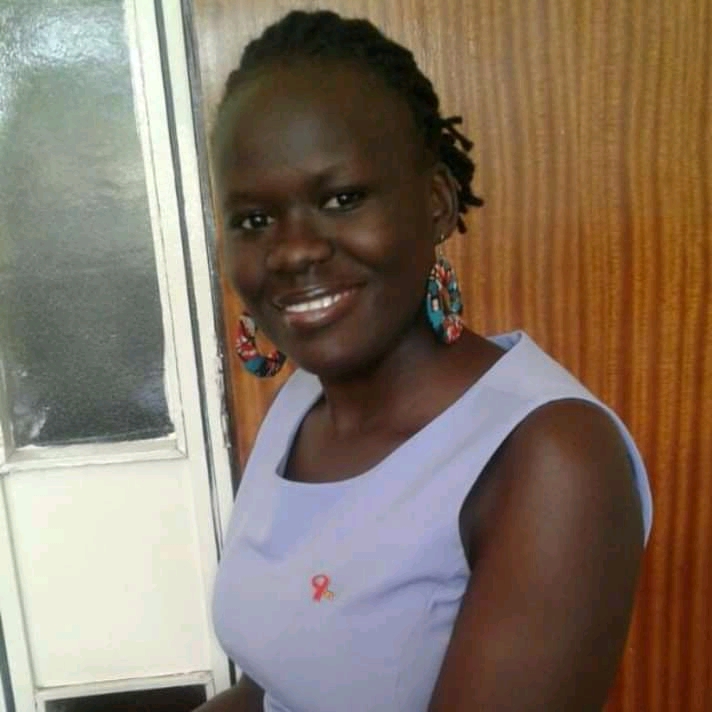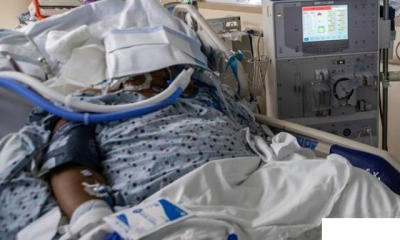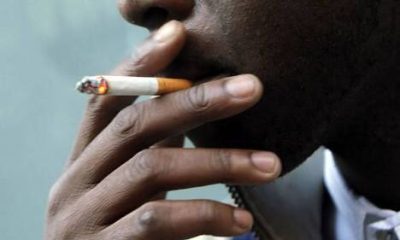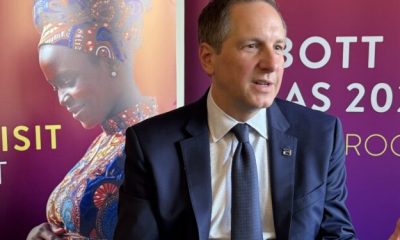Health
How A man I Had Sex Without Knowing His HIV Status Infected Me

It is estimated that 1.4 million Ugandans live with HIV, a virus which causes AIDS, however, social stigma and discrimination remain one of the key barriers to HIV response in the East African country.
A number of Ugandans including top celebrities and other public figures have since the 90’s come to publicly disclose their positive HIV status, with an intention to encourage the public to do voluntary testing as well as creating awareness about the deadly virus. This has motivated many more people to come out, and on Sunday, Sunrise Newspaper talked to Sarah Aporo, a 24 year old HIV Positive Makerere University Business School Administrative Assistant, who believes speaking out boldly about her status can change hundreds of lives.
Endowed with a beautiful smile and husky voice, Sarah Aporo is a 24 year old Acholi, one of the largest tribes in Northern Uganda working at MUBS. She has been on HIV treatment since January 2017.
According to Aporo, she was infected by her boyfriend with whom they had dated for about a year.
“I was HIV negative but I was diagnosed with HIV in 2017 on January 2. You know at the beginning of the year everyone has got ambitions and plans for the year. So January 2, is when I went to hospital to find out about my health status after a tip from a friend that my boyfriend was HIV positive,” Aporo says.
She narrates that after finding out that she had the virus, she asked the boyfriend to go test together for the first time from which both were confirmed HIV positive.
“We had dated for about a year or two and we had never done a test together before despite having sex along. I did my test on January 2, rushed to his workplace and he was not there, so, we both did a test together on January 3, 2017, but before that he told me he did not know his HIV status,” she adds.
“When I asked him when he last tested, he told me three years back, that meant to me that may be he didn’t know his HIV status, but whether he knew or not I can’t really confirm, but for me I was very sure that it is him who infected me. He apologised and we each moved on with our own life,” adds Aporo.
She says that she had prior knowledge that when one tests positive for HIV, starting medication immediately would help him/her live healthier.
“I was informed about the virus although it is unfortunate that I didn’t test with my boyfriend before having sexual intercourse , but that is past now. So, to me I needed to start ARVs immediately,” she narrates.
Aporo explains that starting the medication early has helped her to suppress her viral load to undetectable levels and that she feels “perfectly fine” with no side effects from the first day she started taking the ARVs.
I did not start ARVs immediately because I had to first take my blood samples to know which kind of drugs to give me, so for the first two weeks I was on Septrin then on January 17, 2017, I started taking my ARVs and from then up to now, I have never missed taking it, she says.
She narrates that her family including her mother and friends have been very supportive to her since disclosing to them her HIV status.
“I have had supportive friends, you have heard of families who reject their family members after knowing that they are positive, you have had of friends who discriminate a positive peer and jobs where they don’t employ you when you are HIV positive,” explains Aporo.
“But for me, it was a different case, whoever I shared with was very supportive to me. I shared with my boss and she told me that Sarah this is not a reason for you not to come for work, so that was one of my strong points and my mum and family members have been supportive from day one and they continue to do so,” she adds.
She says before disclosing her status to the public, she lived with the secret for four months and her friends “would speak things about people living with HIV not knowing that the person they are sitting next to is actually positive”.
I would just keep quiet because I wasn’t ready yet to share with them but when I came out to declare to them that I was positive, they all couldn’t hold their tears and apologised for the wrong things they spoke about people who are living with HIV. They didn’t know that their closest friend was HIV positive, Aporo explains.
She says from the above situation she advises the public not to stigmatise any person because of his or her HIV status.
“Sometimes we speak things not knowing that even our parents, the closest friends we have, even your husband may be positive but you are busy stigmatising people who are HIV positive just because they have not shared with you,” she says.
On where she got the courage to publicly state her status, Aporo says: “I don’t mind anyone knowing my HIV status whether it is a prospective marriage partner, my employer, public or friends, because hiding my status is more worse than share sharing it with the World despite the stigma.”
She says it is all about accepting one’s self as a person living with HIV and not minding what other people say.
“For me it may not be about myself because I am very sure that someone who is struggling to live with HIV including huge numbers who contact me after testing positive, they wonder how they are going to live with the virus, get some brighter side of life after sharing with me because they see me living a normal life, going for work as well as doing things I love, despite being HIV positive. So it gives them hope,” she says.
On testing, Aporo says, members of the public should stop ‘testing’ one’s status using eyes saying they are many people who do not believe that she is HIV positive even when she tells them.
“Those who are negative they have a chance of remaining negative but for us who are already positive, we can’t reverse our status back, we only have to take ARVs to keep living.
She says it is burdensome to keep taking medication on a daily and paying constant visits to the doctor revealing that not everyone one living with the virus lives a positive life, thus advising people who are negative to be cautious about their sexual life.
“Am surprised, there are people who see me and they argue that I am lying to them about my HIV status because they think a positive person must look ill and sick. So, they should just look at a person and tell their HIV status, you need to go to a trusted health facility and test together,” he said.
On people who judge those living with the virus, Aporo says it is a bad practice because a huge number of HIV positive individuals acquired the virus not through having multiple sexual partners but, via other ways including those born with the virus, those raped by infected individuals, partners who never disclose their status and married people who go out sleep around and bring the virus to their spouses at home.
“Those who judge people with HIV are very unfair because living with the virus is a burden itself and when people also discriminate you with all sorts of judgements it becomes worse, it is unfortunate, it is a bad thing, I detest it,” Aporo says.
Comments



























